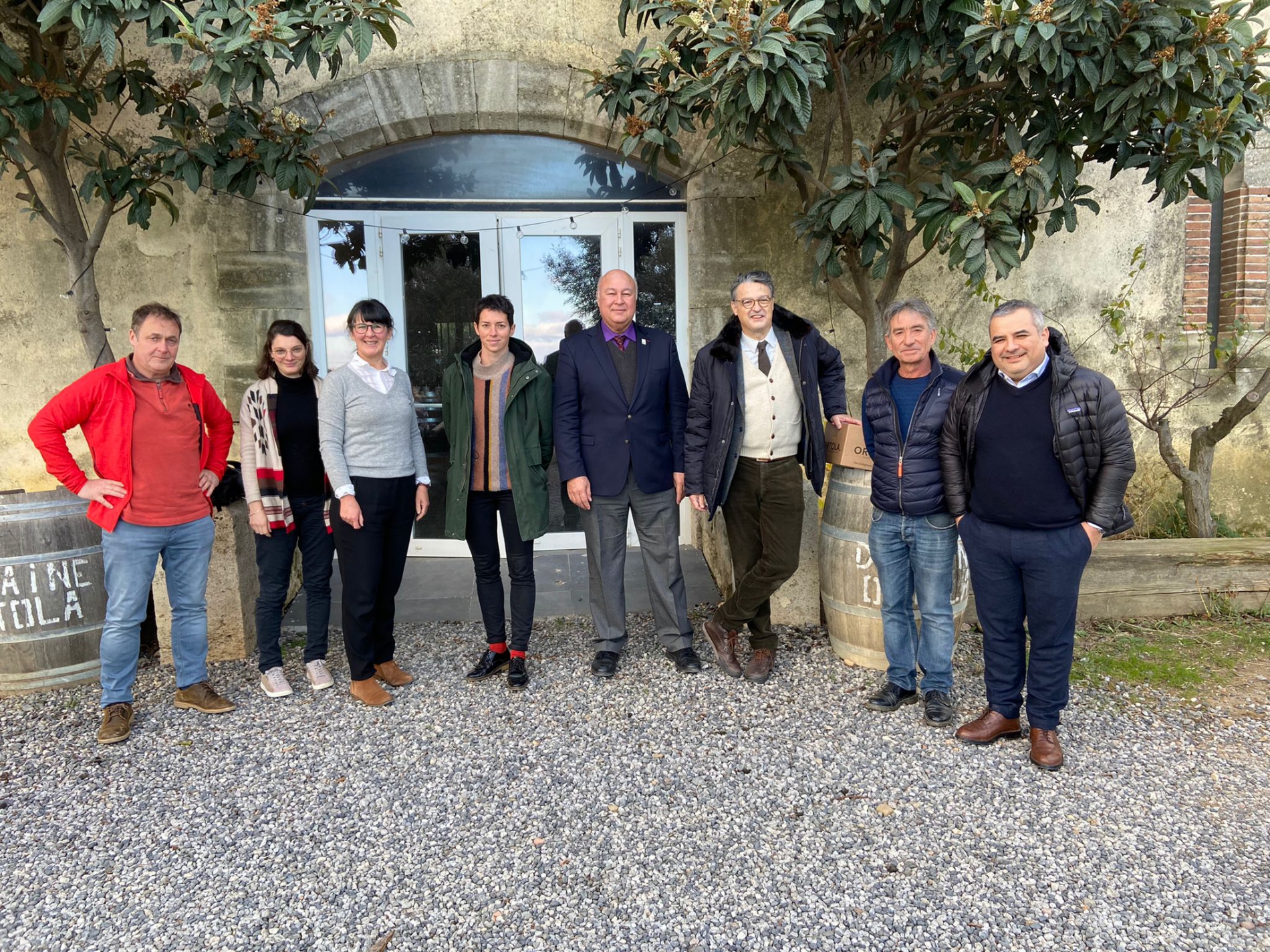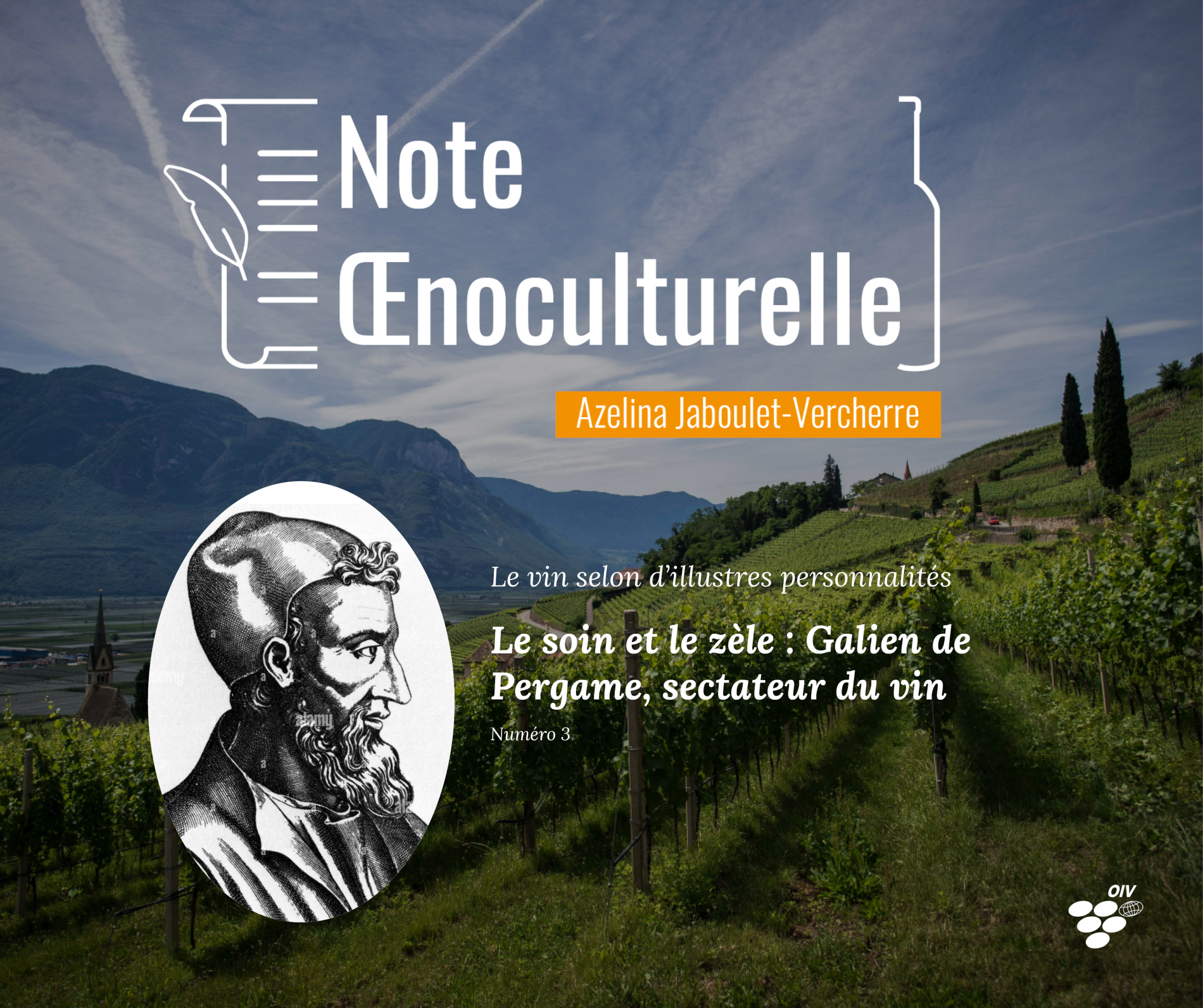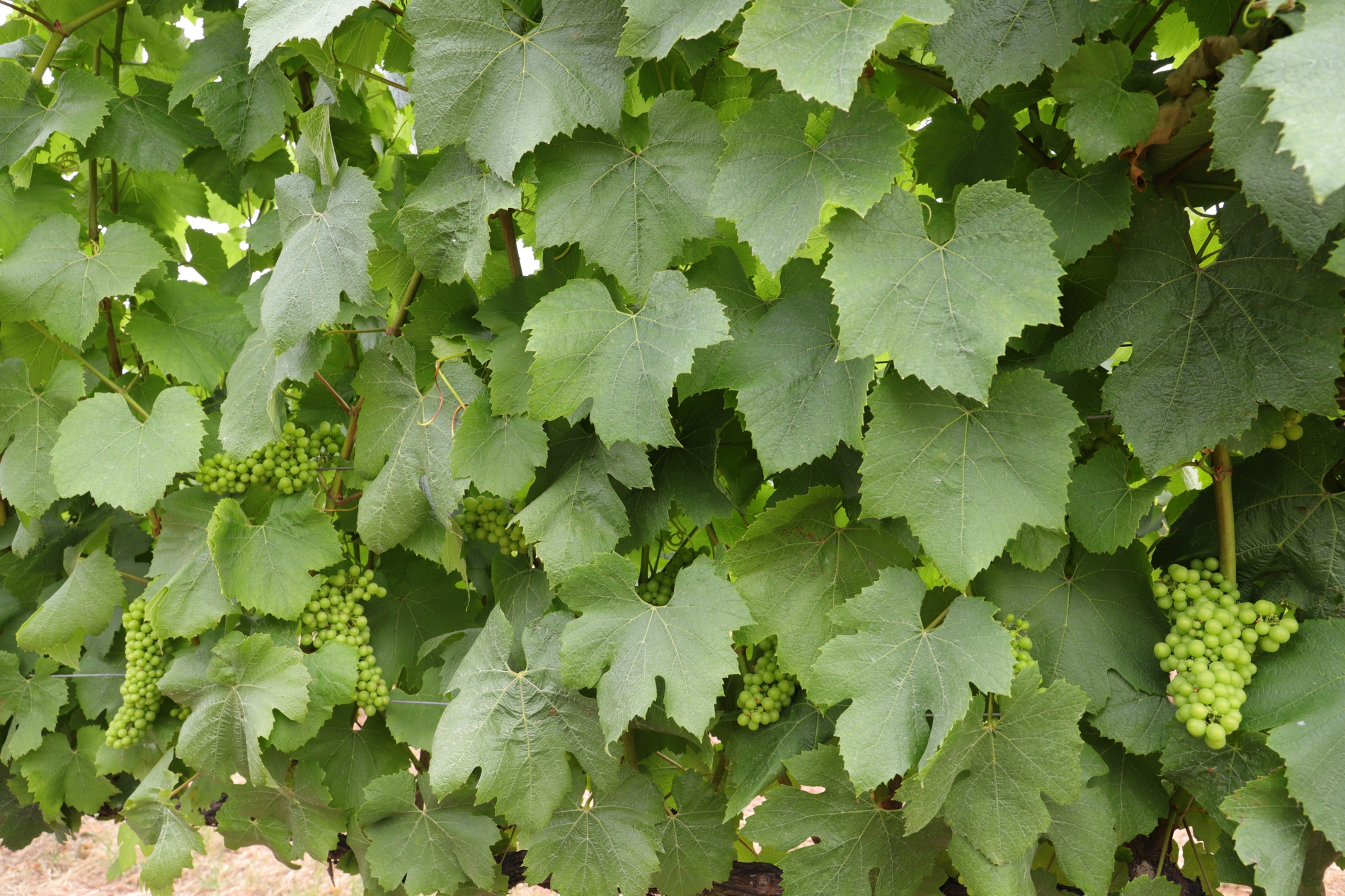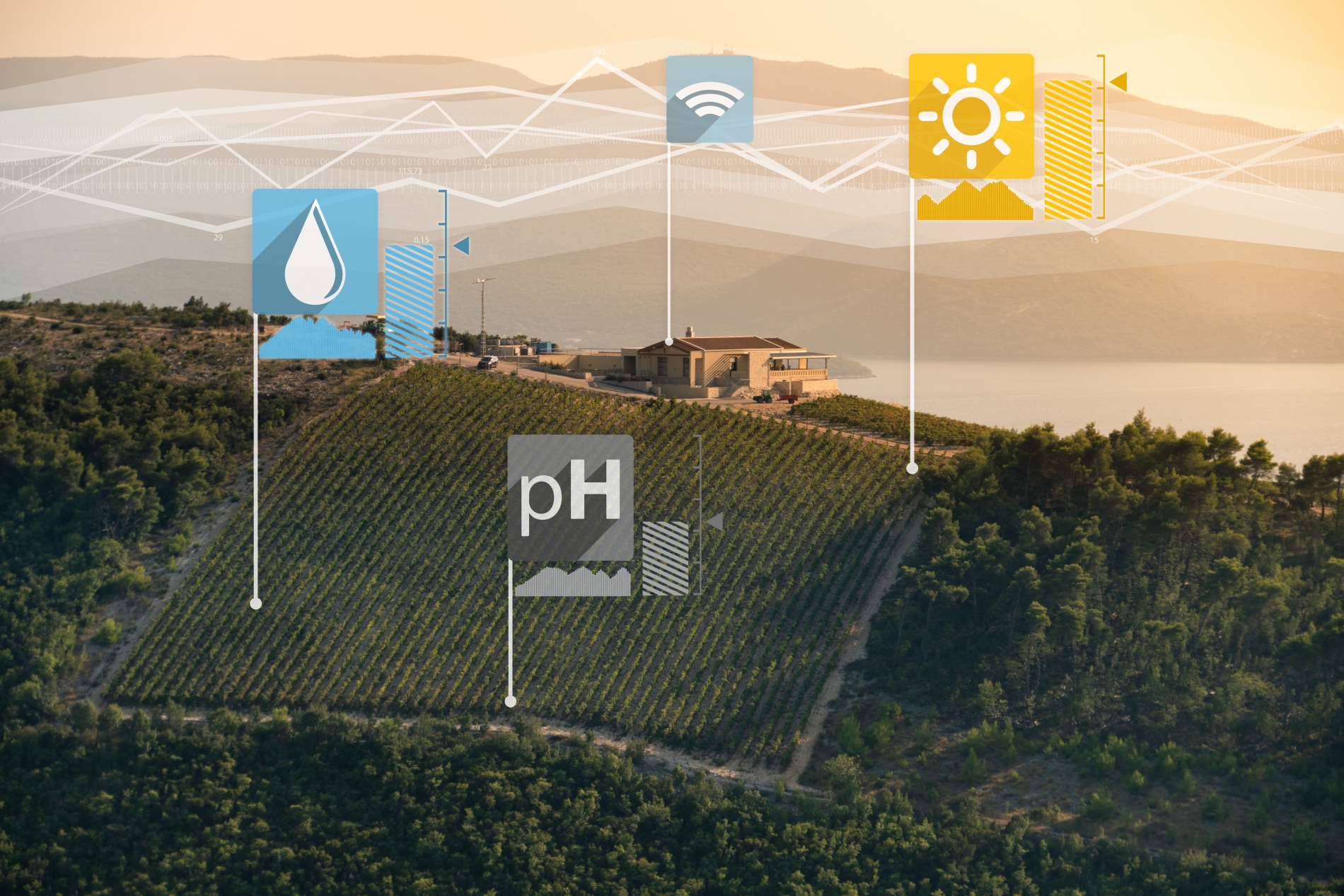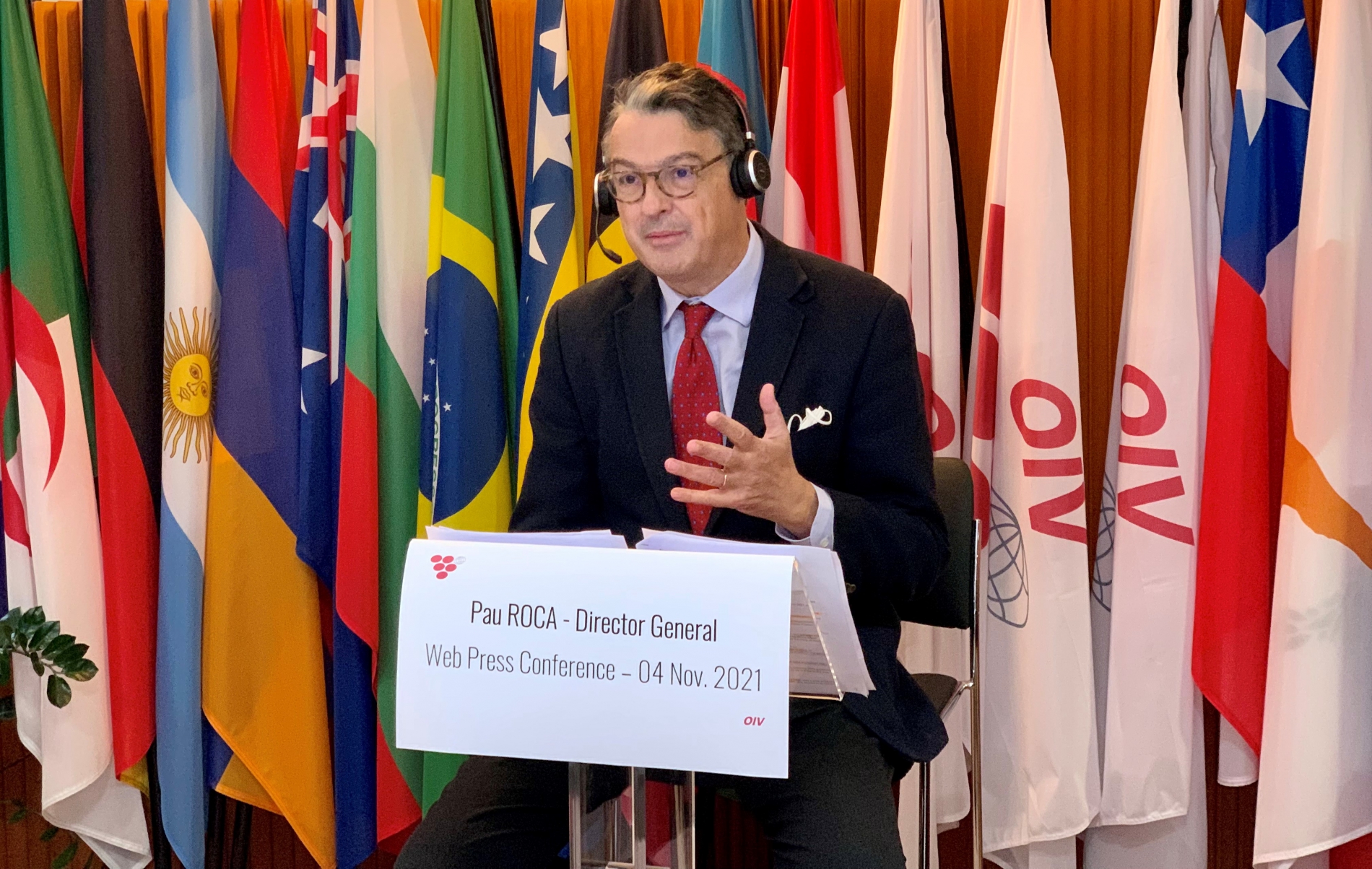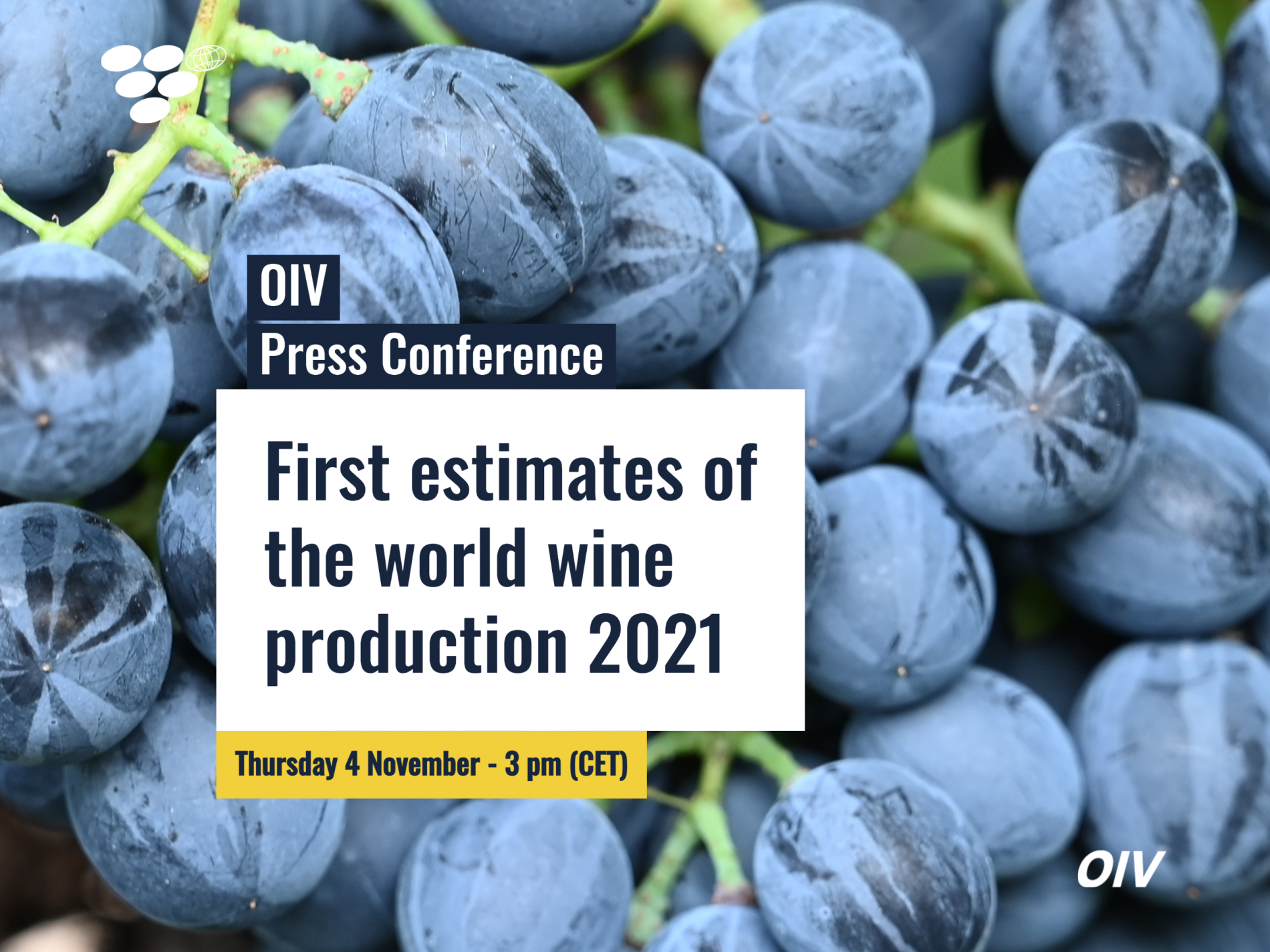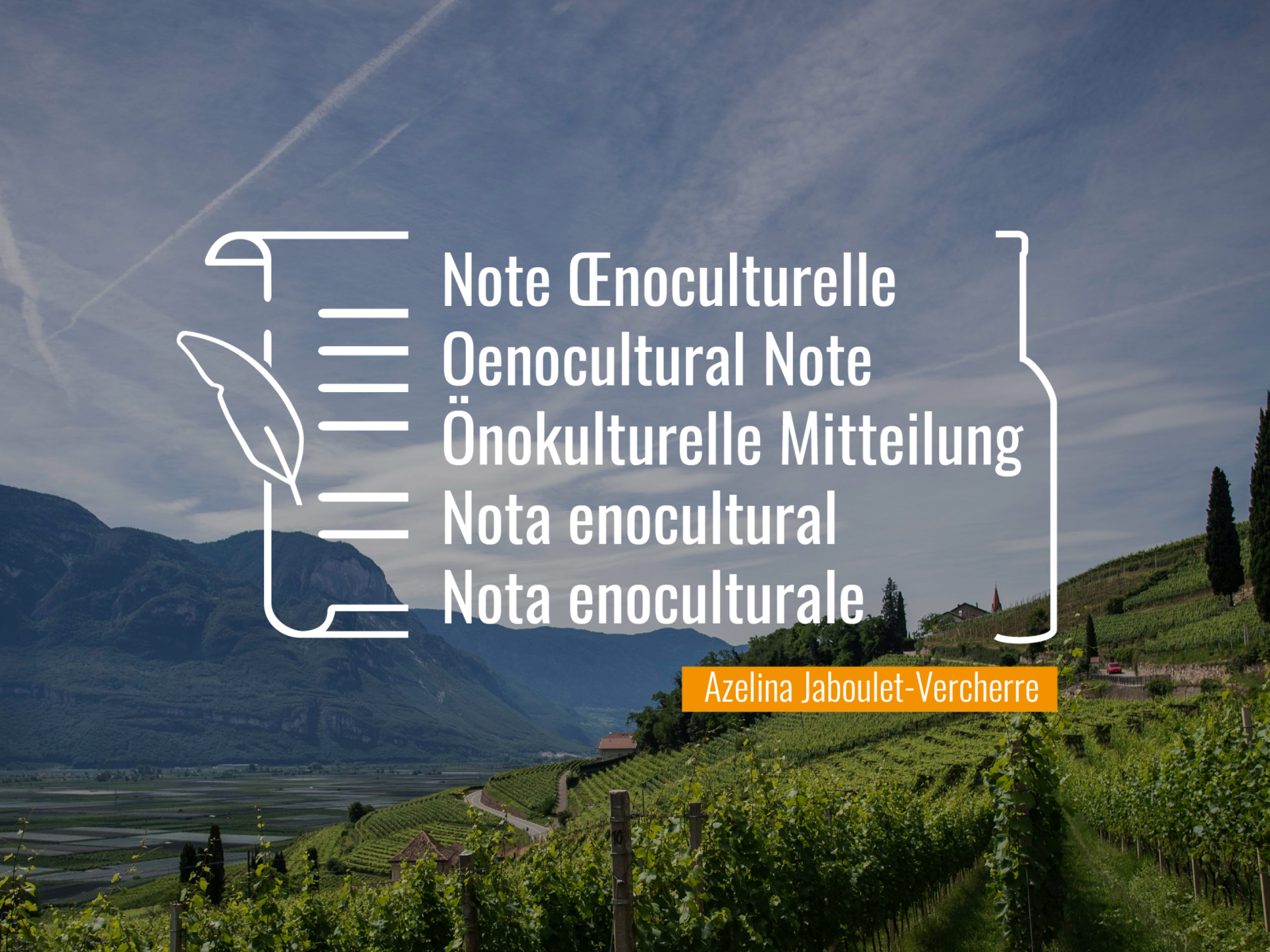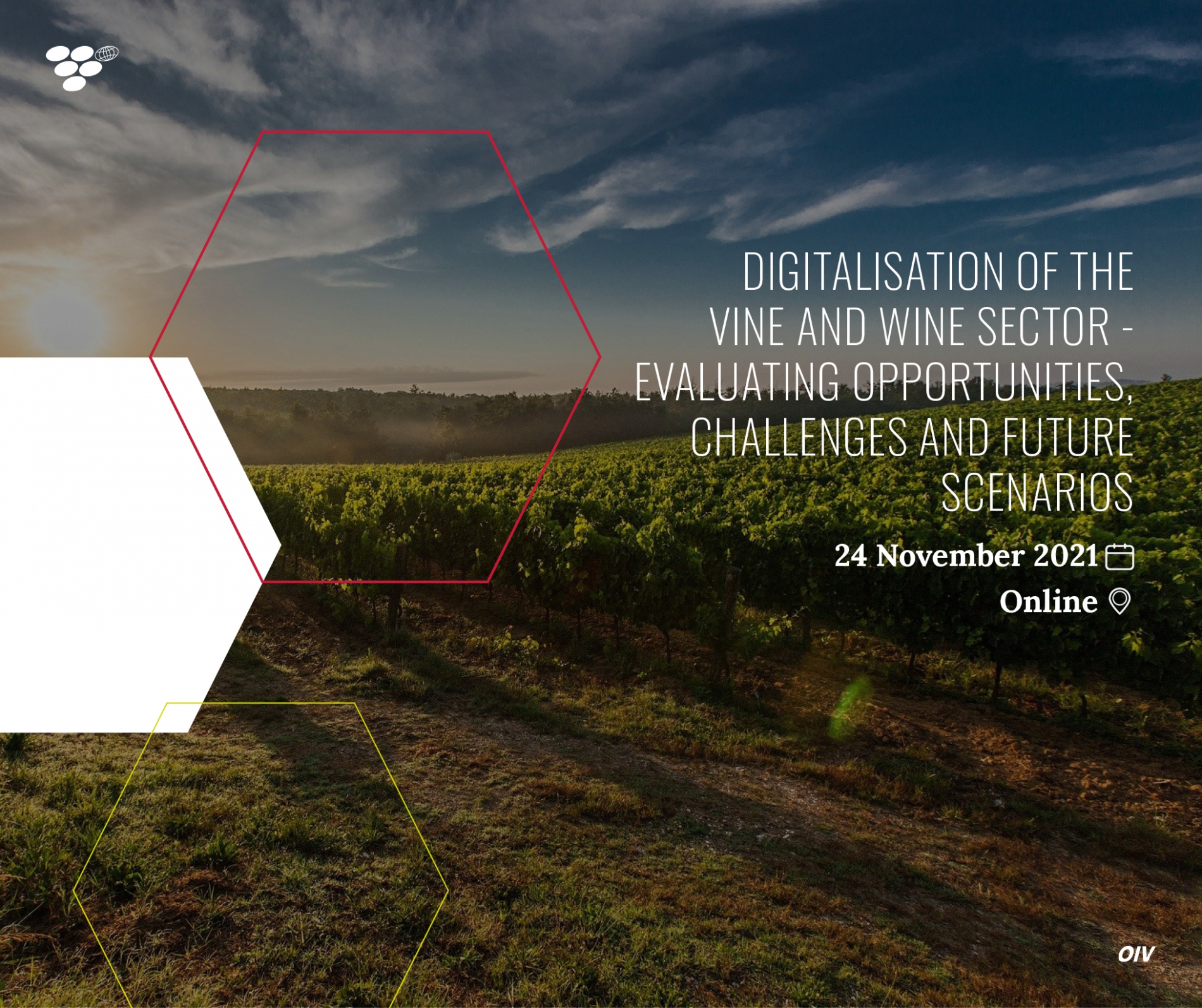18 янв 2022
On 2 December 2021, OIV Director General Mr Pau Roca visited the Montpellier region for a day dedicated to the theme of “Sustainable viticulture: the role of agroecology and soil management”. This visit was also about deepening relations between the OIV and the “4 per 1000” initiative, thanks to the attendance of its Executive Secretary, Mr Paul Luu. It was held at the Notre Dame du Quatourze estate owned by Mr Georges Ortola, who presented the agroecological practices that are implemented on his estates: inter-row cover cropping, tillage reduction, return of pruned canes to the soil, grazing, etc. The importance of good pruning practice has also been emphasised by Mr Alain Canet, President of France’s Centre National d’Agroécologie, who pointed out that pruning problems were recurrent in vineyards and had negative impacts on vine health. Florence Jard, from the “Pour une Agriculture du Vivant” association which works for the transformation of the agri-food sector to agroecology, gave a presentation of the Regeneration Index applied to vines – this makes it possible to evaluate holdings’ agroecological level.“There was a shared vision of the importance of disseminating these practices to the sector as a whole.”This day allowed for a rich exchange of ideas between stakeholders practising agroecology on a daily basis and institutional stakeholders. There was a shared vision of the importance of disseminating these practices to the sector as a whole. The OIV, via the “Viticulture” Unit led by Mr Alejandro Fuentes Espinoza, who is also a member of the “4 per 1000” initiative's Scientific and Technical Committee, takes this topic very seriously. On 19 January 2022, another meeting was held between the executive bodies of the OIV and the “4 per 1000” initiative to contemplate the details of this collaboration. On this occasion, Ms Anne Reutin, a researcher at the OIV, presented her work on carbon issues in the vitivinicultural sector and the importance of taking these issues in hand in political, technical and scientific terms. Both institutions envisage working together and developing key areas of work as well as discussions to achieve progress at the international level on this major topic of soil health and safety.
Read Russian version here
09 янв 2022
Считается, что труды Клавдия Галена (129-200/210 гг.) составляют почтиодну восьмую дошедшей до нас греческой литературы, написанной со временГомера до конца II века нашей эры. Однако многие из его трактатов утрачены, аоб остальных нам известно только по переводам на латинский, арабский и режена иврит. Глубокое знание классической литературы и философии, а, значит, ивладение навыками софистики, стали залогом успеха Галена в областинатурфилософии. Всю свою жизнь он стремился поднять медицинскую науку науровень искусства, совмещая с врачебной практикой, которую онсовершенствовал в Смирне, Коринфе, Александрии и Пергаме, где стал врачомпри школе гладиаторов1. Поиск благородного союза между теорией и практикойнаходит идеальное выражение, когда в своих текстах он неоднократнозатрагивает вопросы вина. Как известный продолжатель традиции Гиппократа, он составляет подробные комментарии к сочинениям его Корпуса, в частности к сочинению«О диете при острых болезнях» (Régime des maladies aiguës)2. В своей интерпретации Гален обогащает и расширяет строгую классификацию своего предшественника и приводит примеры конкретныхвиндля иллюстрации основных критериев вина по Гиппократу: цвета, вкуса, структуры, аромата и свойств. В одном из трактатов о противоядиях Гален выделяет различные типы вин: густые, крепкие, слабые (или водянистые), горькие, кислые, что позволяет ему затронуть вопрос о потенциале к выдержке для каждого из них: средний для «белых вин с легкой структурой», значительный для «крепких, горьких и густых белых вин». На фоне остальных он явно выделяет два вина: соррентинское и фалернское. «Стоит ли говорить о соррентинском вине? Всем известно, что оно остается молодым около двадцати лет. Все это время оно не теряет своей силы, долго сохраняет приятный вкус, не склонно к появлению горечи; оно обладает теми же характеристиками, что и фалернское вино». Гален, «О противоядиях» I. 3 (Des antidotes I. 3)3 Во многих трудах Гален признает важность терруара и связывает его с потенциалом вин к выдержке. Он не первый врач, который восхваляет целебные свойства вина, но уникальность его подхода заключается в той тщательности, с которой он описывает характерные особенности разнообразных вин. Такое неутомимое усердие делает его одним из первых просвещенных энофилов в истории мысли4. Когда речь идет о вине, Гален, как и многие из нас, не чужд вкусовым пристрастиям, которые он преодолевает в стремлении утолить любопытство. Помимо вин Малой Азии он признает ценность винодельческой продукции Италии, неоднократно признаваясь в особой любви к превосходному фалернскому вину. Гален описывает его как вино с необыкновенным букетом, которое способно поразить беспристрастного знатока и стать упоительным субъективным открытием для восхищенного новичка. И даже если, как он отмечает, для описания чувственного опыта недостает слов, вино позволит объединить эмоции и рассудок. И доказательством тому может быть узнавание вина, которое вы пробуете в первый раз, но уже слышали о нем. И все, что вы о нем знаете, может даже усилить ощущения при дегустации5. Среди высоко ценимых фалернских вин Гален выделяет два основных сорта по степени их сладости, отмечая особо ярко выраженную сладость фаустинского вина6. Его сладость балансирует на грани терпкости и остроты, двумя другими основными вкусами, в соответствии с которыми Гален классифицирует вино. Между тем, вкусовые ощущения раскрывают консистенцию вина и его свойства. Таким образом, более нежная плотность фаустинского вина делает его идеальным ингредиентом для изготовления противоядий, в частности, териака – самого совершенного из противоядий7. In a treatise on antidotes, Galen identified different types of wine – firm, strong, weak (or watery), bitter, sharp – and rated their storage potential, which was mediocre for “white wines of little substance”, and significant for “strong, sharp and thick white wines”. Sorrento and Falernian wines stood out from the rest. Indeed, he saw them as essentially interchangeable3. Indeed, the reason for the two wines’ similarities had to do with terroir, which Galen acknowledged as important, and linked to the ageing potential of wines (beyond twenty years). Although he was not the first physician to praise the therapeutic uses of wine, he was unique in the meticulousness with which he described the specific qualities of a large number of wines. Such zeal undoubtedly makes him one of the first enlightened oenophiles in the history of thought4. «Книга о винах» (Le livre des vins) Галена заслуживает особого упоминания. Этот труд в лучших традициях Гиппократа отличается своей краткостью и впоследствии часто используется как vade mecum8 (справочное пособие) по медицинской литературе о вине. Сначала Гален рассматривает различные виды вина с точки зрения структуры, начиная с самого легкого вина, котороеназывают «водянистым» из-за сходства с водой по цвету и консистенции, а также, как он уточняет позже, из-за слабой терпкости. Это вино обладает слабовыраженным вкусом, и Гален советует не добавлять в него много воды, чтобы не нарушить его и без того легкуюструктуру9. Своим мочегонным действием оно обязано скорости процесса диффузии в организме. Даже если его теплота умеренна в сравнении с другими винами, его природа теплее природы воды. Это легкое вино укрепляет легкие и разжижает основные жидкости организма (не только кровь), его умеренная теплота не вредит при лихорадке, в отличие от других вин и нечистой воды; наконец, оно не повредит молодым людям, а также сухому и горячему темпераменту холериков. Оно помогает при головной боли и нежелательном вздутии живота10. Затем Гален переходит к описанию отличительных свойств сладких и густых вин. Такое разграничение позволяет продолжить поиск полной совместимости природы человека и структуры вина, что впоследствии и будут делать его преемники. Ученые того времени в большинстве своем искали гармонию между вином и пьющим, а не между едой и вином, как это с энтузиазмом делают наши современники. Гален опирался на образную близость вина и человеческого тела для объяснения физиологических механизмов, например, проводя аналогию между кроветворением и производством вина11. Для Галена вкус и аромат вина неотделимы от его структуры, которая лежит в основе его уникальности и сложности. Знания о вине и поиск множества различных способов его описания не только не умаляют впечатления от дегустации, но и открывают ее новые грани. Дегустация – это нечто большее, чем сугубо физическое явление, она наполняет благодатью сердце, неизбежно подчиненное темпераментам тела12. Таким образом, говоря о вине, Гален раскрывается как служитель медицинского искусства и как представитель этической мысли. Гален использовал такое сравнение, чтобы объяснить процесс формирования основных жидкостей организма и появление едкости черной желчи, или уксуса, который оказывает разъедающее действие на желудок («О естественных способностях», II.9 (Des facultés naturelles, II.9)). Образно говоря, качество вина зависит от организма. Надлежащему функционированию организма, нормальному осуществлению процесса кроветворения противопоставляются возможные изменения основных жидкостей в результате их разложения. -------------------------------------------- 1 Об определении «медицинского искусства» по Галену см. вступление Вероник Будон к ее изданию Galien, vol. 2, Paris, Les Belles Lettres, 2000, p. 168-170; 224-252. 2 См. Wesley D. Smith, The Hippocratic Tradition, Ithaca, N.Y., Cornell University Press, 1979, особенно главу 2, «Galen’s Hippocratism», p. 61-176. 3 Пер. выполнен по пер. Жан-Марка Мандозио (оригинал – пер. Кюна XIV, 14-19). 4 См. вступление Вероник Будон к ее изданию Galien, vol. 2, Paris, Les Belles Lettres, 2000, p. 168- 170 ; 224-252.5 Galien, De la connaissance du pouls 11, по пер. Кюна VIII, 774-5. 6 Galien, De la méthode thérapeutique XII 4, по пер. Кюна X, 832. 7 Galien, Des antidotes I 3, по пер. Кюна XIV, 20. 8 Данный текст содержится во многих средневековых рукописях, в том числе в парижских рукописях BnF Lat. 6865, fol. 53vb-54va; N.A.L. 343, fol. 69r-70r. (труд De alimentis содержится в fol. 74-107), его содержание не претерпело существенных изменений в использованном здесь издании (Венеция, 1490, в Galen, Opera, vol. 1, fol. 135vb-136rb). 9 Galien, Le livre des vins, Венеция, 1490, vol. 1, fol. 136rb. 10 Galien, Des facultés naturelles III.15. 11 Galien, De l’utilité des parties du corps humain 4, пер. Шарля Дарамбера в Œuvres médicales choisies, vol. 1, p. 281-282. 12 Galien, Que les facultés de l’âme suivent les tempéraments du corps, пер. Барра, Биршлер, Моран, 2004, § 1; 3
07 дек 2021
One of the new measures for the vitivinicultural sector is the official laying down of conditions for the dealcoholisation and partial dealcoholisation of wines. In defining this new framework, the EU has used the work of the OIV as a basis, in particular Resolutions OIV-ECO 523-2016, OIV-ECO 433-2012 and OIV-ECO 432-2012.The designation of the product category (a compulsory particular) is now to be accompanied by the terms “de-alcoholised” or “partially de-alcoholised” for the following products: “wine”, “sparkling wine” and “aerated semi-sparkling wine”. Total dealcoholisation is limited to products that do not benefit from a designation of origin or a geographical indication. Partial dealcoholisation is permitted for all wines, sparkling wines and aerated semi-sparkling wines.The alcoholic strength by volume threshold between “de-alcoholised” and “partially de-alcoholised” is the same as that accepted by the OIV in 2012, namely 0.5%.In line with OIV recommendations (OIV-OENO 394A-2012), the permitted dealcoholisation processes to partially reduce or almost totally eliminate the ethanol content in grapevine products are partial vacuum evaporation, membrane techniques and/or distillation.The wine sector continues to innovate and is sensitive to the changing concerns of consumers, while maintaining respect for the integrity and traditions of the product. OIV Member Countries are currently working on a framework defining specific oenological practices that would be applicable to these new products.
29 ноя 2021
The International Organisation of Vine and Wine (OIV) in cooperation with the French National Institute of Wine (IFV), is organising an international symposium on following topic: The Vitivinicultural sector: which tools to face current challenges? The symposium will be held in the frame of the International Horticultural Congress (IHC) is the most important scientific event organised every four years since 1959 in the fields related to horticulture (fruit, vegetables, aromatic and medicinal plants, seeds and roots, ornamental plants, landscaping, vineyard.) under the auspices of ISHS (International Society for Horticultural Science).ISHS is a truly global network comprising over 6,000 members. Its aim is to promote and foster research and education in horticultural science and to facilitate cooperation and knowledge transfer on a global scale through events and publications.This symposium will address some of the major challenges facing viticulture for grape, raisins, juices and wine production worldwide: grapevine decline, soil preservation and management, and grapevine genetic diversity. A specific session will address the current challenges in the production of table grapes, dried grapes and non-fermented beverages.The following topics will be developed during the symposium :• Facing grapevine decline- Abiotic and biotic stress factors: climate change, harmful organisms, etc.- Vineyard management: viticulture practices, training systems, landscape management etc.- Economic and societal impact of grapevine decline• Sustainable management and conservation of vineyard soils- Soil conservation- Systemic and integrated management to improve soil quality: functional biodiversity, soil microbiota, etc.- The contribution of soil in climate change mitigation: carbon sequestration, low emission soil management practices, etc.- Impacts of climate change on soil composition and activity.• Preservation and improvement of grapevine genetic diversity- Resistant and ancient varieties to meet production and consumption challenges in a context of sustainability of the sector.- Ampelographic and molecular techniques for variety identification and selection.• Current challenges of viticulture in the production sector of table grapes, dried grapes and unfermented beverages- Technical and economic challenges in table grape and dried grape production- Food and health related challenges for producers and consumers of table grapes, dried grapes, and non-fermented beverages- Grapevine breeding programs: what are the specificities for the table grapes and dried grape sector?Submit your abstract here before Decembre 20th. Key Speakers : Cornelia Rumpel, CNRS, France and Gregorio Muñoz Organero, IMIDRA, Spain Where ?Angers, FranceWhen?
24 ноя 2021
The meeting brought together experts from the academia, governments, international organisations and the private sector from different countries: Dr. Adriaan Oelofse who is the Research, Development & Innovation Manager at WINETECH who spoke about the concept of smart vineyards, the professor expert in Artificial intelligence Dr. Bernard Chen from the University of Arkansas, professor at the Comillas Pontifical University and Blockchain expert Dr. Javier Ibañez, Mr. Fabián Torres who is a Principal Consultant at SICPA and also an expert in Digital Transformation and Guidance, and finally Mr. Olivier Oram, expert in Blockchain and founder of Chainvine, a business that helps reducing the cost of trust in moving wine all over and around the world".The event is very special for the OIV since it marks a milestone in the five-year strategic plan.“From its foundation in 1924 the approach of the OIV has always been one of taking advantage of the most recent evolution of all scientific knowledge and using the most innovating tools offered by technology to mankind”, said the OIV director General Pau Roca in his opening speech of the symposium. “It has been extremely interesting to also see how new technologies can help address some of the key issues to the sector such as sustainability, climate change, traceability, fraud prevention, or resilience”, said Mr Roca to conclude the meeting. As an international organization of scientific and technical nature, the OIV aims to inspire and provide guidance to all stakeholders, and ensure that such a transition is smooth, inclusive and benefits the whole sector with an equal measure, whether it is the industry, consumers, or governments.PPT by Giorgio Delgrosso, Head of Statistics & Chief DigitalTransformation Officer
Report on digital trends applied to the vine and wine sector
ReplaysReport on digitalisation. Presentation by Giorgio DelgrossoInterview: Professor Adrian Oleofse. Smart Vineyards. WINETECH Round table : Challenges and Opportunities of Digital Transformation in the vine and wine sector
28 окт 2021
Speaking from the OIV’s headquarters in Paris, by web conference, Director General Pau Roca, presented on 4 November, the first estimates of 2021 world wine production.•Low production volume anticipated in the EU, notably in Italy, Spain, and France, which together lost about 22 mhl with respect to 2020 due late spring frost and overall unfavourable climatic conditions.• The only large EU wine producing countries that recorded harvests bigger than 2020 are Germany, Portugal, Romania and Hungary.• First harvest forecasts in the USA indicate production volumes slightly above those of 2020.• Very positive year for Southern Hemisphere vineyards where relatively favourable climatic conditions lead to record high production levels in countries of South America, South Africa and Australia, with New Zealand being the only exception.Replay Press release PPT Presentation[ENG]2021 Wine production first estimates
24 окт 2021
The General Assembly has decided to transfer the headquarters of the OIV with the relocation of the Secretariat from Paris to Dijon. The 48 member states accepted France's proposal to provide the OIV with headquarters, ensuring temporal, legal and financial stability for the Organisation.Read the full press release
11 окт 2021
To attend this online press conference, journalists are kindly asked to register here. • Date: Thursday 4th November 2021•Time: 3pm CET•Location: OIV App (soon available)•Language : English, French, Spanish
06 окт 2021
Hildegard of Bingen (1098–1179) Хильдегарда Бингенская«Открыть глаза на природу»: вклад средневековых натуралистических идейAzélina Jaboulet-Vercherre Associate Professor, Ferrandi Paris В наше время, тревоги и страхи которого мы переживаем в коллективном сознании, взгляды устремляются к поиску исторических концепций, которые позволят нам противостоять нелегким вызовам современной эпохи. Сельское хозяйство, как и (пара)медицина, разворачиваются в сторону холистического понимания мира, вызывая в памяти удивительные персонажи из нашего общего прошлого. Сразу же на ум приходит более или менее осознанная аллегория природы, заставляя погрузиться в фантастический универсум былых времен. Он может быть средневековым, как у автора XII века Бернара Сильвестра, создавшего Космографию, где Природу направляет еще более мощная матьприрода: Нус. Сочетая в себе интеллект, мудрость и Божье провидение, Нус диктует природе, что необходимо сделать для восстановления порядка из хаоса макрокосма1. Объединившись, эти две высшие природы смогут воссоздать гармонию между разными видами. Хильдегард Бингенская, "целостное" духовное упорядочивание знаний Чтобы понять представления и подходы того времени, задержимся еще ненадолго в XII веке, который принес с собой возрождение натурализма2, а именно, вспомним труды Хильдегарды Бингенской (1098-1179). Монахиня, писательница, врач, провидица и музыкант, Хильдегарда показывает в своих произведениях тонкое ощущение природных ритмов, и мы воспринимаем ее как выдающегося основоположника тех идей, на которые ориентируются нынешние адепты биодинамики. В ее произведениях подчеркивается тесная связь между внутренними движениями тела и Природой (жизненные силы), в частности, в научном труде Физика, имеющем также название Liber subtilitatum, или же Liber simplicis medicine (датируется приблизительно 1150 г.)3. Здесь в энциклопедической форме представлен весь инвентарь Творения, где фигурирует космология, космография, люди и их деятельность, в том числе выращивание и сбор винограда, болезни и лечение. Хотя Хильдегарда это часто отрицала, она знала классиков. Ее оригинальность проявляется в самых разнообразных планах, и ни один из них не доказывает, что быть женщиной – обязательное препятствие на пути к признанию, можно сказать уважению со стороны великих представителей своего века (Бернар де Клерво, папа Евгений III). И все же ее «поставили на место» – так часто случается с исключительными умами – и объявили «Учителем Церкви» только 07 октября 20124. Однако, для нас основной интерес представляет ее духовное упорядочение знаний, которые мы можем квалифицировать как «холистические». Хильдегардианский взгляд на Творение Помимо своего представления о земле, как одном из четырех составляющих элементов вселенной, она интересуется различными видами почвы и их использованием5. В труде Cause et Cure (Причины и лечение) отражаются масштабы натуралистического подхода Хильдегарды, где главная роль отводится светилам – солнцу и луне («матери всех времен»)6. В частности, автор упоминает о влиянии луны на выращивание винограда (посадку, урожай, качество винограда, а также условия, при которых ягоды гниют) и понятии земельных угодий (иерархия почв в зависимости от количества солнца и влаги, сорта винограда в зависимости от региона выращивания виноградника): «Деревья, которые находятся в южной части и орошаются водами с Востока, хорошо растут и дают хорошие плоды разных сортов с хорошим вкусом… Из виноградников, которые там растут и развернуты на восток, получается большое количество вина, и вино получается хорошего качества. [….] … в западной части… вино крепкое, но невкусное, оно не может сохраняться, ведь в этой местности земля содержит тепло и холод. […] […] Действительно, вино лучше формируется в тепле, чем в холоде7.» Такое видение Хильдегарды о творении опирается на систему представлений о мире, предложенную в Генезисе: «При создании человека из земли была извлечена особая земля: это был человек. […] А земля давала свою силу и крепость в виде разных сортов, природы, обычаев и всего, что окружало человека»8. Творение благосклонно к нам, когда мы используем его устойчивым и здоровым образом Следует отметить не только взаимодействие между принципом божественного и упорядоченностью природы (физической и человеческой), но и факт наличия зеркального эффекта – настоящий средневековый топос, возникший из рассуждений о космосе. Перед нами предстает зависимость людей от высших правил, требуя от нас соответствующего поведения. Требование смиренности ставит нас лицом к лицу перед силой природы, которой мы подчиняемся и которая нас кормит – никак не наоборот. Для аббатисы провидицы движения солнца преподают нам урок морали: «Когда он [человек] своими плохими поступками нарушает справедливость, он утяжеляет солнце и луну, делает их более темными, в результате чего они, следуя его примеру, являют свои силы в бурях, дождях или засухах […]9.» «Когда в зимний период солнце опускается, его огонь снисходит во всей жестокости справедливого наказания в виде льда, изморози и града. Через огонь, через холод, через другие бедствия все грехи подвергаются той каре, которую они заслуживают10. Эти несколько фраз можно воспринять как укор и порицание. И все же, высказывания «Сивиллы Рейнской» призваны скорее напоминать нам о том, что божье Творение для нас благотворно, если мы будем разумно и здраво его использовать. _____________________ 1 Бернар Сильвестр, Космография, Париж, Cerf, 1998. 2 Бернар Рибемон, О природе вещей. Исследования средневековых энциклопедий, Орлеан, Paradigme, 1995, стр. 89. 3 Название Физика появляется в первом издании. Для более подробной информации о произведениях, на которые опирается это исследование, см. работы Лоранс Мулинье, в частности «Земля глазами Хильдегарды Бингенской» (март, 2005 г.), 205-230. 4 Мишель Труве и Пьер Дюмулен, представление текста Хильдегарды Бингенской, Заслуги жизни. Принципы христианской психологии, Editions des Béatitudes, 2014, стр. 9. 5 Книга об особенностях божьих творений (Liber subtilitatum), перевод П. Монат, Гренобль, 1988, том 1 стр. 29-31. 6 Хильдегарда Бингенская, Причины и лечение, составитель и переводчик Пьер Монат, Гренобль, Jérôme Million, стр. 29. 7 Причины и лечение, стр. 46-48. 8 Книга об особенностях божьих творений, стр. 29 9 Ead., стр. 31. 10 Книга о божьих творениях: Видения, составитель и переводчик Бернар Горсе, Париж, Albin Michel (коллекция «Живые начала духовности, серия Христианство»), стр. 39-40.
05 окт 2021
The OIV launches a new international event on the digital transformation of the sector, bringing together experts from academia, governments, international organisations and the private sector from different countries. During this event, the preliminary results of the report produced by the OIV observatory will be presented.To attend this symposium register here Date - Wednesday 24th November 2021Time - 11am CET Location - App events OIV Languages - English - simultaneous translation into French and Spanish Speakers:International experts in digitisation from different backgrounds (universities, national and international public sector, private sector).Audience:The event will be public and will address a wide range of audiences.
